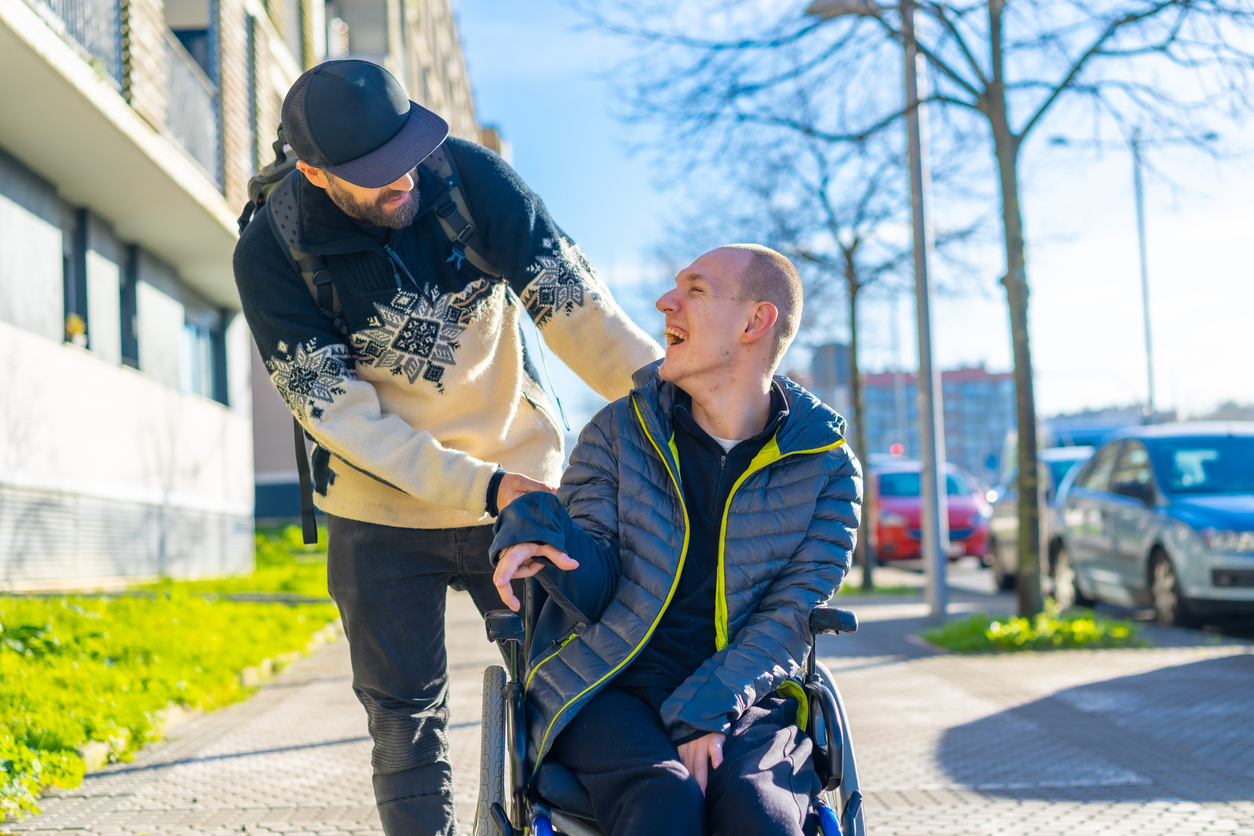“The only place that a true disability can reside is in one’s attitude…and that is a choice.”
~ Scott Chesney, Speaker, Coach & Consultant | Alliance Advocate
Is your attitude where you want it to be? Is it a positive one or a negative one? The good thing is that every moment of the day we are given an opportunity to change. As the amazing Maya Angelou once said, “
If you don’t like something, change it. If you can’t change it, change your attitude, don’t complain.”
You may be thinking to yourself: “
I want to change my disability. I don’t want it anymore. I did not sign up for this.” While that may be the case and you can’t physically
change your disability at this very moment, remember you can change your attitude and live your life to the fullest with your disability. Make the choice to do so, starting today!
What is Positive Thinking?
We hear about the power of positive thinking a lot, but can a positive attitude really help someone with a disability deal with hardship? The answer is simple: yes. Choosing to be positive and focusing on the good things in life helps gain control over negative thoughts and emotions. Positive thinking reduces stress and anxiety as well, which in turn results in many physiological benefits to the body.
It’s important to note that a positive attitude doesn’t negate or deny hardship and struggle. Nor does it ignore the more difficult emotions we experience. A positive outlook is about where we choose to expend our emotional energy. Energy is, after all, in limited supply, especially when valuable energy is needed to recover and rehabilitate from illness or injury.
Change Your Thoughts, Change Your Life
A person who thinks positively anticipates health, success, and happiness, and truly believes any obstacle or difficulty can be overcome. This is easy to say, but not always easy to do. So how do we change our outlook? How do we change our thoughts?
Thoughts are more than fleeting ideas; we
become our thoughts. How we think about ourselves, what our internal narrator sounds like, holds power over our whole outlook on life.
For example, take a look at the difference between these two statements:
A negative attitude says,
“You are disabled. Your life isn’t going how you planned. Now you won’t get to have the things you want. You are helpless. Nothing will ever be the same again.”
A positive attitude says,
“You are disabled. Your life didn’t go quite how you planned. This doesn’t feel good and there is a lot of work to do. You can still have the things you want. You will have to recalibrate and strategize differently than you thought you would, but you can get there. It might take longer and be a little more difficult, but it’s possible.”
With both statements, the situation is the same. In both statements, hardship is acknowledged. But which outlook would you rather have while facing adversity? Which outlook increases the chances you’ll achieve your goals, find balance, and foster happiness?
How to Create Positive Thinking
So where do we start? It all begins with nurturing self-awareness and mindfulness. If we pay attention to our thoughts with self-compassion and objectivity, we become more aware of thought patterns that could have a positive or negative impact on our outlook on life. Once we are aware of these patterns, we can make the decision to change them. Thoughts are never “good” or “bad”. They are simply thoughts. Thoughts can start to feel like the absolute truth of a situation, unless we take steps to observe them and change the way we think.
Here are six ways to think and behave in a more positive and optimistic way each day:
Check In With Yourself. Take a break periodically during the day and evaluate what you're thinking. If you find that your thoughts are leaning towards the negative, try to reframe your outlook, and rechannel your emotional energy to the positive.
Laugh. The old saying
‘laughter is the best medicine’ is an adage for a reason: it’s true. Humor is an essential part of healing, and fuels positive thinking. Watch funny movies, read humorous books, and spend time with people who make you laugh, no matter what the circumstances.
Foster Gratitude: No matter how hard things get, there is always something to be grateful for. Some days you have to dig a little deeper than others, and you may have to start really small. Keep a daily gratitude list, and write at least five things you’re grateful for at the beginning or end of each day. Some days it may be as simple as a nice warm blanket, a safe place to live, or food on your plate, but they all add up.
Practice positive self-talk. This is a powerful one. Be gentle and encouraging with yourself. When you’re feeling particularly discouraged or anxious, this can be challenging. When this happens, actively speak to yourself the way you would speak to a loved one. You deserve all the love and kindness you give to others.
Follow a healthy lifestyle. Pay attention to your overall physical health. Nutrition, proper sleep, and fitness are all essential to our mental outlook and health. People with spinal cord injury face a number of physical challenges, and nurturing the mind is as important as the body for overall health and wellbeing.
Surround yourself with positivity. Our surroundings are a vital part of our ability to maintain a positive outlook. Keep things around you that give you pleasure: a scented candle, pictures of loved ones, and a comfortable environment promote positivity. The same holds true for the people around you. Surround yourself with positive, supportive people you can depend on and who make you feel good, and worthy.
These are just some of the ways you can reframe a negative outlook, and turn adversity into opportunity. More often than not, it is in adversity that we dig deep, and find out just how amazing, brave, and capable we are, but it all starts with a positive, hopeful outlook on life.
For more enlightening resources, information, and discussion, join the
Enemeez© Facebook Community today!













